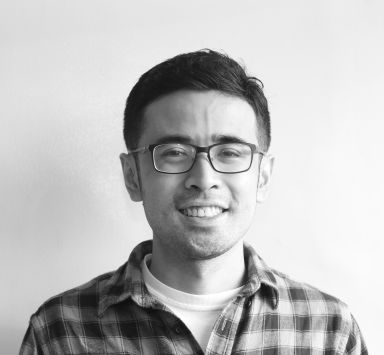
MACASERO
If women journalists in the Philippines participated in the global campaign “A Day Without a Woman” for International Women’s Day this year, most newsrooms across the country would be very empty.
Well, we do have a gender imbalance in Philippine newsrooms, but it’s the opposite. The first time I walked into a newsroom in this country, I said to myself, “Where are all the men?”
But I’ve since learned to appreciate the pivotal role women have played in shaping media in this country.
I am also lucky and fortunate to have been mentored and guided by many strong female journalists in the US and Philippines.
But the first woman to encourage me to go into journalism was my mom.
When I was an adolescent, I used to keep a journal to write my thoughts.
I’d hide this journal behind my books on the bookshelf, thinking no one would find it there. But one day my mother did find it and read some of my entries. “Ryan, you write so well! You should be a journalist.”
I brushed it off as a joke and thought my mom was just being, well, a mom.
While I enjoyed reading and writing, I never gave it a thought to pursue writing as a career. I was shy, quiet and passive and the last person you’d think would want to be in media.
Then came college.
I was set to graduate in 2011 in California and needed to complete an internship for my degree in international studies.
A weekly newspaper called Philippine News, which was the largest Filipino American newspaper in the United States at one time, interviewed me for an internship.
I was in my dorm when Cristina Pastor, a New Jersey-based journalist formerly of the Manila Chronicle, then the managing editor of Philippine News, called me for a phone interview.
“Can you write?” she asked.
I thought, “does she mean can I write? Or can I write for a newspaper?”
I answered her, “I write for my classes, but I haven’t written news stories before.”
“That’s okay. We can teach you along the way. So when can you start?” she replied.
I started interning that summer.
I had no idea what I was in for. But that phone call would change the rest of my life.
Studying international relations, I thought I would pursue a career in diplomacy. But as the internship progressed, I was certain this is what I was meant to do.
A few weeks into the internship, the paper’s editor-at-large Cherie Querol Moreno, also a veteran journalist who used to be an editor at Mr. & Ms. Magazine, an opposition magazine known for its critical coverage of the Marcos regime.
She sat me down in her office, pulled out printed copies of my stories with red markings and notes. She went over my story in detail, and I was sure I was going to get verbally annihilated.
But – to my relief – after the end of the meeting she told me, “Ryan, you are a talented writer. You just need to hone your skills.”
These were the words that gave me confidence to believe that perhaps my mother was right along, that I should be a journalist.
In 2013, Rappler, a young news start-up in Manila invited me to join their growing team.
This was a company run by all women. At its helm as the executive editor and chief executive officer is Maria Ressa, former Manila and Jakarta bureau chief of CNN and head of ABS-CBN News.
Almost everything I learned on the fundamentals of practicing journalism were from the women of Rappler.
First, investigative news head Chay Hofileña unlocked skills in me I didn’t know I had, and I remain grateful for the opportunity to work on crucial in-depth stories that directly impacted public policy.
Miriam Grace Go, Rappler’s news editor, taught me the importance of building stock knowledge, understanding local context and just how exciting covering elections could be.
Managing Editor Glenda Gloria, strict but wise, taught me the importance of discipline (If I’m disciplined yet is another story), how to treat a story with care, and to never drop the story after you break it.
Collectively, they taught me the meaning of strength and courage.
And this year I find myself with Cebu Daily News, headed by its fierce Editor in Chief Edralyn Benedicto. Its editorial team, managed mostly by women, is not new to getting heat from local officials who criticize the paper for its coverage on local events.
But courage is in the DNA of Inquirer publications.
During the Marcos years, many women journalists like Eugenia “Eggie” Apostol – the founder of the Inquirer, and its first female Editor in Chief Leticia Jimenez-Magsanoc, relentlessly covered corruption and abuses of the regime.
I truly believe that without women, Philippine journalism would be an institution more obedient to power instead of one that functions to question it.
So, yes, there is a gender imbalance in Philippine newsrooms. But I think the country is better off because of it.
Disclaimer: The comments uploaded on this site do not necessarily represent or reflect the views of management and owner of Cebudailynews. We reserve the right to exclude comments that we deem to be inconsistent with our editorial standards.




